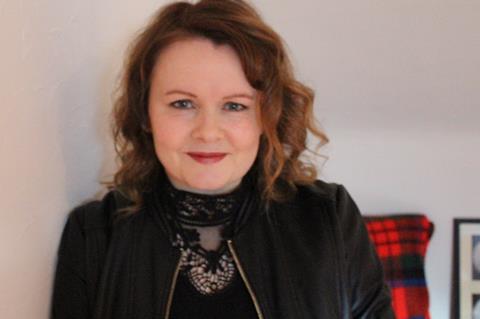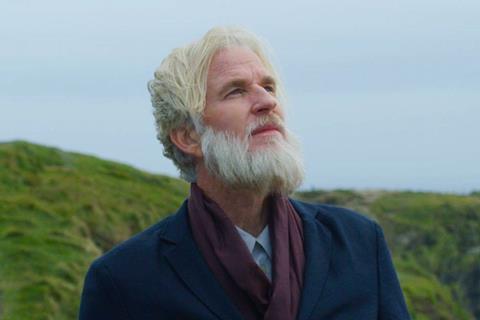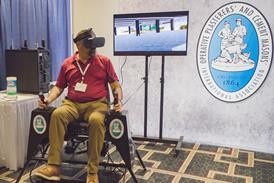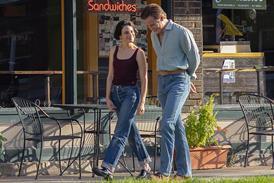
Galway Film Fleadh gets underway today (July 11) for its 35th edition, and its first with Maeve McGrath as director of programming, who took over from Will Fitzgerald at the start of 2023.
Limerick native McGrath has extensive experience in Irish film festivals, having previously worked as artistic director of Kerry International Film Festival, producer at Carlow Arts Festival and joint short film programmer at Dublin International Film Festival. While she has given the Galway programme a bit of a refresh, she’s not planning for a radical overhaul.
“The Fleadh is doing things right,” she says. “We still hear festivals every day that are struggling with funding and keeping going, but the Fleadh has been around for the last 35 years and I think it’ll be there going forward. I am going into something very solid, but of course, as a new programmer, you have your own ideas.”
McGrath has introduced a peppering of new programme strands – including Defender, which brings together stories with an activist edge, such as Polish feature Backwards that follows a mother fighting for her autistic child’s rights to attend mainstream school; Artist On Film, celebrating the work of artists across multiple disciplines, including Carol Morley’s Typist Artist Pirate King and the world premiere of Donald Taylor Black’s documentary, John Behan – Odyssey, which will tell the story of one of Ireland’s best–known living sculptor; and Architecture On Film, a personal passion of McGrath, and includes The Promise. Architect BV Doshi, a reflection of one of India’s most influential 20th-century architects.
The festival is beloved for its informality, and McGrath is not looking to change that. “We’re more Sundance than Berlin,” she insists. “There’s less black tie, it’s more casual. People rock up to their premieres in jeans and t-shirts. There is a lot of craic.”
Night-time networking events will continue to run out of Galway’s rowing club. “A lot of the deals and networking happens late at night,” she notes.
To mark the 35th anniversary, there’s a retrospective screening of Joe Comerford’s Reefer And The Model, which is one of the first films to ever screen at the Fleadh. Kings from late filmmaker and Fleadh veteran Tom Collins is also screening, in tribute.
While there is a world cinema competition, with a cash prize of €3,000, Irish cinema remains at the festival’s core. “There’s no question – the Galway Film Fleadh is for Irish film,” says McGrath, with 34 Irish films will screen in the Irish Cinema section, with 20 world premieres and seven Irish premieres.
McGrath notes an increase in Irish-language films getting submitted to Irish festivals in recent years, bolstered by the Cine4 Irish-language feature development fund. “The language is a very important part of who we are,” she says. “We will go to the ends of the earth to find Irish-language film [for Galway].
This year, there are five Irish-language films in the line-up, including the world premiere of Ciara Hyland’s Croíthe Radacacha (Radical Hearts), that explores the eight female couples who were at the heart of the Irish revolution that freed Ireland from the British empire.
There is ambition to build on the global success of Irish-language Oscar nominee The Quiet Girl (An Cailín Ciúin) and Tarrac, which is to be released in the UK and Ireland by Parkland Pictures in September.
“Irish language is popping up everywhere,” McGrath says. “There has been a shift in the last 20 years. We are in a new world in Ireland. A lot of the time before, schools were run by the church and the state. Schools are coming through now that are funded independently, whether that be by parents or a board of directors, and the opportunity to have Irish language as the main focus in school has come through from that.”
Among the up-and-coming Irish talent that McGrath is excited for are Maya O’Shea, an actor who stars in Galway premieres Verdigris and Made In Dublin, and Conor King, who is at the festival with the world premiere of his feature directorial debut A Passing Place. Both are nominated for the festival’s Bingham Ray New Talent award.
Industry engagement

The Galway Film Fair runs alongside the Fleadh, with the marketplace happening from Thursday to Saturday.
Industry strands include the Fleadh Forum, an annual symposium for filmmakers and industry professionals. This year it features panel discussions on virtual production, Eurimages and new models of screen finance and co-production. There are also masterclasses with UK filmmaker Carol Morley and US actor Matthew Modine, who stars in Galway world premiere The Martini Shot.
Further panels include a session on neurodiversity in the Screen industry (July 15), featuring TG4’s Trevor Ó Clochartaigh, Screen Ireland’s Grainne Bennett, screenwriter Lindsay Sedgwick and animator Katarzyna Mazur.
Challenges
“Funding is always a problem,” says McGrath. “As we’ve seen with Clermont-Ferrand, one of the biggest short film festivals in the world, they’ve just had a lot of their funding [cut]. You’re always looking to meet your KPIs [key performance indicator], to set standards you should be setting, to meet the goals you should be setting.
“We live in a streaming world. They’re not going away, and we, festivals, aren’t going away. The challenge is for us, if there’s potential a film might be bought by a streaming platform, [is] to get in early. There are a few festivals that lead into us, SXSW, Sundance, and we have to have those conversations early so we get those films we really want before they hit a streaming platform.
“There’s also the challenge of audience. People have to get used to coming back post-Covid. We have to provide the best of films and make sure the prices are at a proper price point, and making ticket buying easier. It’s always a challenge, but we’ve had queues out of the door to buy tickets when we launched them. There’s an appetite for sure.”
Galway runs until July 16.























No comments yet